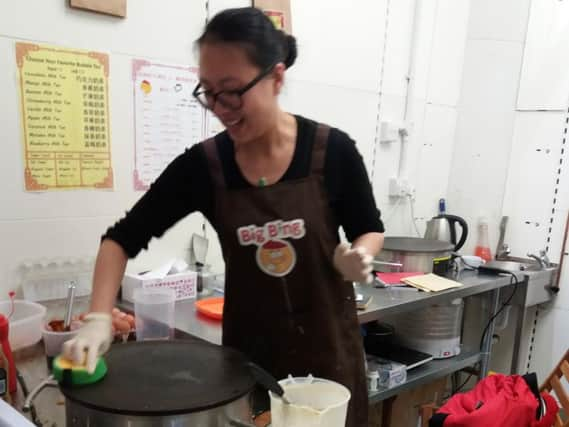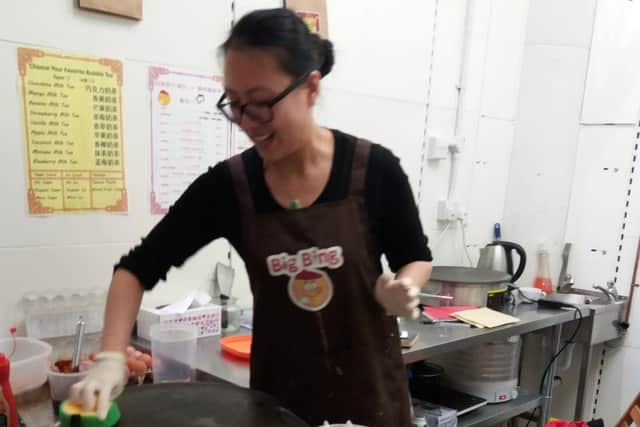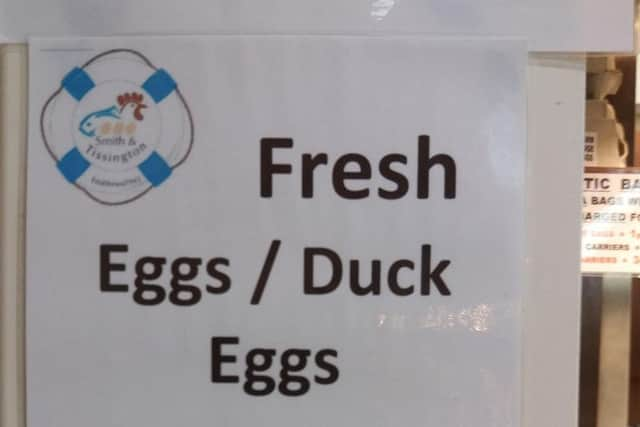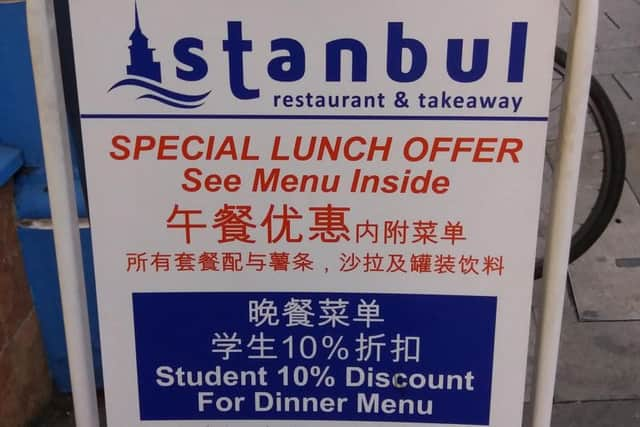Sheffield shops use Mandarin to reach out to the city's large Chinese student population


New Chinese neighbours and colleagues have been stepping in to help with translation.
Like other UK cities, Sheffield has attracted thousands of students from China, with 3,113 mainland Chinese students enrolled at Sheffield University alone in 2015 - not including the 572 from Hong Kong, where Cantonese is spoken and traditional Chinese characters are used.


Advertisement
Hide AdAdvertisement
Hide AdA Freedom of Information (FoI) request to Sheffield Hallam University has revealed that 1,378 students from China were enrolled there for the 2015-16 academic year.
Yet Sheffield has gone further: July saw a billion-pound construction deal signed between Sheffield and the Sichuan Guodong Construction Group in southwest China, which is to invest 220 million pounds in the city centre over the next three years.
Smith and Tissington in Sheffield’s Moor Market is one local business that actively reaches out to Chinese customers, promoting its duck eggs - popular in China - in Mandarin.
Debra Tissington, 51, joint owner of the family business, said duck eggs were popular with Chinese customers in Sheffield, and that the use of Chinese characters helped to attract Chinese students.


Advertisement
Hide AdAdvertisement
Hide AdShe added that Smith and Tissington had two Chinese staff members.
Karon Breckon, owner of Meadowhead Flowers in the Moor Market, said: "I do a lot of tweeting, use Twitter a lot, and when I do Twitter I always put the hashtag and then put a flower, and always put the flower with the Chinese symbols, just so that it reaches a wider audience."
Ms Breckon said that roses were popular with Chinese customers, while chrysanthemums were not.
"There's a massive link between flowers and their culture," she added.


Advertisement
Hide AdAdvertisement
Hide AdReds and pinks, she said, represented luck and friendship, while white chrysanthemums were associated with funerals.
Aslan's, a kebab restaurant on West Street, in the Sheffield University area, uses Mandarin on one side of its lunch menu flyer.
Nearby, Istanbul Restaurant and Takeaway uses Mandarin to advertise its 10% discount for students on evening meals.
MA student Tian Lan Qin, 22, from Guizhou province in China, said that restaurants were including Chinese characters and offering discounts to attract Chinese students.


Advertisement
Hide AdAdvertisement
Hide AdMeanwhile, some Chinese business owners in Sheffield, like their British counterparts, are combining Mandarin with English to appeal to customers.
Ms Zhang Ge, 26, from the city of Qingdao in China's Shandong province, sells "Chinese Crepe" - a filled, wafer-thin, savoury pancake that is a specialty of Shandong - at her Big Bing stall in the Moor Market.
While links with China are flourishing and impacting the character of the city, students from China’s East Asian neighbours are underrepresented by comparison.
The FoI request to Sheffield Hallam University revealed that only three Japanese and four South Korean students were currently enrolled there.